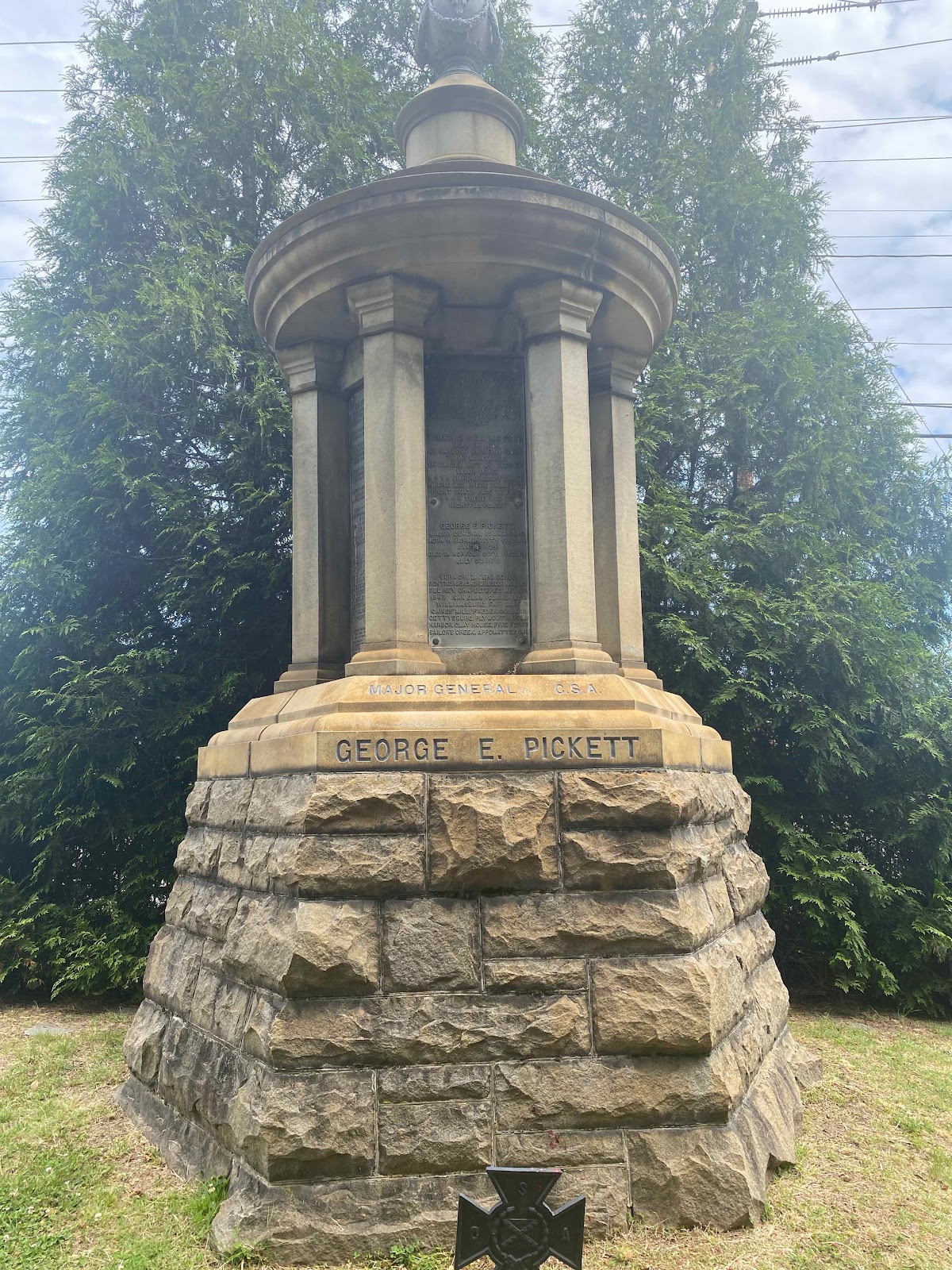Veteran of four wars, four enlistments, four branches: Air Force, Army, Army Reserve, Army National Guard. I am both an AF (Air Force) veteran and as Veteran AF (As Fuck)
Wednesday, January 3, 2024
Jefferson Davis Was Not Tried for Treason: America still suffers from that decision
Sunday, May 28, 2023
Hollywood Cemetery in Richmond: Honoring Confederate War Dead without Flags and Racism
On this Memorial Day Weekend, my 51st as a soldier and veteran, I went to Hollywood Cemetery in Richmond, Virginia, with my daughter Lauren.
The cemetery is in a beautiful location overlooking the James River just where the falls end and the river becomes Navigable.
The graves in this sprawling 135-acre cemetery opened in 1847. Thousands of people are interred on the rolling hills north of the James River. At the north end of the cemetery on a hillside is Confederate Avenue. This section of the cemetery includes the pyramid built just after the war to honor the confederate dead and the graves of thousands of confederate soldiers.
As we approached the pyramid, I was delighted to see no statues of leaders of the rebellion, no confederate flags. For me, April 12, 1861, and January 6, 2021, are the worst days in American history: worse than December 7, 1941, and September 11, 2001, because on those days the murderous enemy was an enemy outside the country.
This cemetery quietly honors the service of the thousands and thousands who died for their country without glorifying the cause they fought for.
An entire section of the cemetery has tombstones with death dates at the beginning of July, 1863. Thousands of Virginians died at Gettysburg, most of all on July 3 when Richmond-born Major General George Pickett led the ill-fated Picketts Charge that sealed the defeat of Confederate Army at the most historic battle of the Civil War.
Pickett is entombed at the top of the hill in the same area.
We live in a country where confederate flags wave from public buildings and pickup trucks and until recently American military bases were named after confederate leaders. America failed to erase the confederate cause and symbols from public life after the Civil War. The result was another hundred years of racist laws in the Jim Crow South.
Germany did a much better job after World War II. They outlawed Nazi flags and symbols. Students and soldiers in Germany visit Nazi death camps to learn how bad the Nazis were.
There is a German Military Cemetery in Normandy. More than 20,000 German soldiers are buried there. Each has a simple marker with name, rank and unit. There is one statue of an ordinary soldier and no flags. The cemetery honors the service and sacrifice of the soldiers, not the cause. I cried when I visited there in 2017 thinking how different America might have been if the confederate cause was suppressed after the Civil War.
Soldiers under any flag can do their duty honorably. My favorite memoir by an ordinary soldier is about a 17-year-old who enlisted in the German Army in 1941 and served the entire war on the Eastern Front.
Just down the hill from Pickett's grave and west of the graves of confederate soldiers is a memorial to the cadets of John Marshall High School. Each of the markers has the names of cadets and their graduation year. The majority of those named were killed during World War II. Those who lost their lives in other wars have the war noted next to their names.
Throughout my service in four different enlistments, when I was on active duty, the majority of the soldiers I served with were from southern and inland western states. In the spring of 1980 when I had just returned from three years as a tank commander in West Germany, I read an article that said almost half of the men graduating from Baylor University that year were in ROTC programs and beginning active service. Of the 1,400 graduates of Harvard University that year, two were joining the military.
I was happy to see American flags waving in the cemetery honoring service of soldiers during the past century.
Geography Is Destiny — and Britain’s Fate Is Not What It Thinks
In Geography Is Destiny , historian Ian Morris returns to familiar ground for readers of Why the West Rules, for Now and War! : the long...

-
Tasks, Conditions and Standards is how we learn to do everything in the Army. If you are assigned to be the machine gunner in a rifle squad...
-
The Remains of the Day by Kazuo Ishiguro Kazuo Ishiguro’s The Remains of the Day is, on the surface, a beautifully restrained novel about...
-
On 10 November 2003 the crew of Chinook helicopter Yankee 2-6 made this landing on a cliff in Afghanistan. Artist Larry Selman i...









